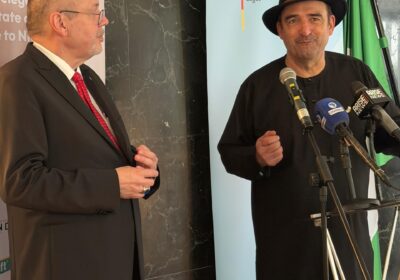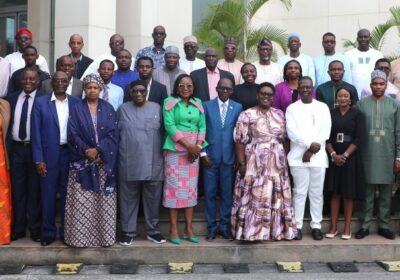WADEMOS Urges Renewed Solidarity to Defend Democracy Amidst Growing threats to Regional Integration.
By Raymond Enoch
The 3rd Annual Regional Convening of the West Africa Democracy Solidarity Network (WADEMOS) concluded in Accra, Ghana, with a resolute call for action to safeguard democracy across the ECOWAS region.

The Meeting held from March 3-4, 2025, themed “Leveraging Solidarity Movement in Defense of Democracy across West Africa: Challenges, Lessons Learned, and Perspectives,” drew representatives from over 30 civil society organizations, experts, and political leaders across the region.
The event emphasized the pressing need for renewed unity among West African nations, especially in light of the region’s increasing democratic backslide.
West Africa, once a beacon of democratic progress, is now grappling with significant political challenges that threaten its stability. From military coups to constitutional breaches, the democratic ideals that have driven the region’s development for decades are increasingly under siege. Togo, Guinea Bissau, Guinea Conakry, The Gambia, and Côte d’Ivoire are among the countries experiencing alarming setbacks, with civil society groups warning of growing authoritarianism and the erosion of constitutional rights.
In Togo, the government’s controversial amendments to the constitution, which undermine term limits, have sparked widespread protests and condemnation. Meanwhile, Guinea Bissau’s President Umaro Sissoco Embaló’s dissolution of parliament has drawn concern about the country’s adherence to democratic norms. Guinea Conakry, still reeling from a 2021 military coup, faces uncertainty as elections scheduled for 2025 are repeatedly delayed, while Côte d’Ivoire’s political climate is tense ahead of the 2025 elections, with President Alassane Ouattara’s bid for a fourth term igniting fear of instability.
The convening, however, was not without hope. The conference highlighted successes like Senegal’s peaceful transfer of power in 2024, and progress in Nigeria, Ghana, and Liberia, where democratic principles are being upheld. But the path forward is fraught with challenges. The withdrawal of Mali, Burkina Faso, and Niger from ECOWAS has fractured regional unity and increased calls for institutional reform within the bloc.
A central resolution from the conference was the need for greater cross-border collaboration in advocating for democracy, with a particular focus on countries like Togo, Guinea Bissau, and Guinea Conakry. Participants also called for increased attention to the issue of information disorder, particularly in the Sahel region, where disinformation and foreign interference are undermining civic engagement.
WADEMOS issued a powerful statement urging ECOWAS and regional actors to prioritize a unified approach to combat these democratic backslides. The network emphasized the importance of maintaining dialogue between ECOWAS and the African Economic and Social Community (AES) and addressing the growing challenges of digital manipulation and repression.
Further, the conference acknowledged the shrinking civic space in the Sahel and encouraged civil society organizations to explore self-financing models and collaborate with the private sector to ensure continued activism despite diminishing international aid.
As the region’s democratic trajectory faces growing pressure from both internal and external forces, the participants expressed a unified commitment to preserving West Africa’s democratic gains. The WADEMOS statement underscored the urgent need for solidarity and proactive engagement to defend democracy, human rights, and the rule of law in an increasingly volatile geopolitical environment.
The conference concluded with a call for urgent action from all sectors—governments, civil society, the media, and the private sector—to help prevent the further decline of democratic institutions in the region.








